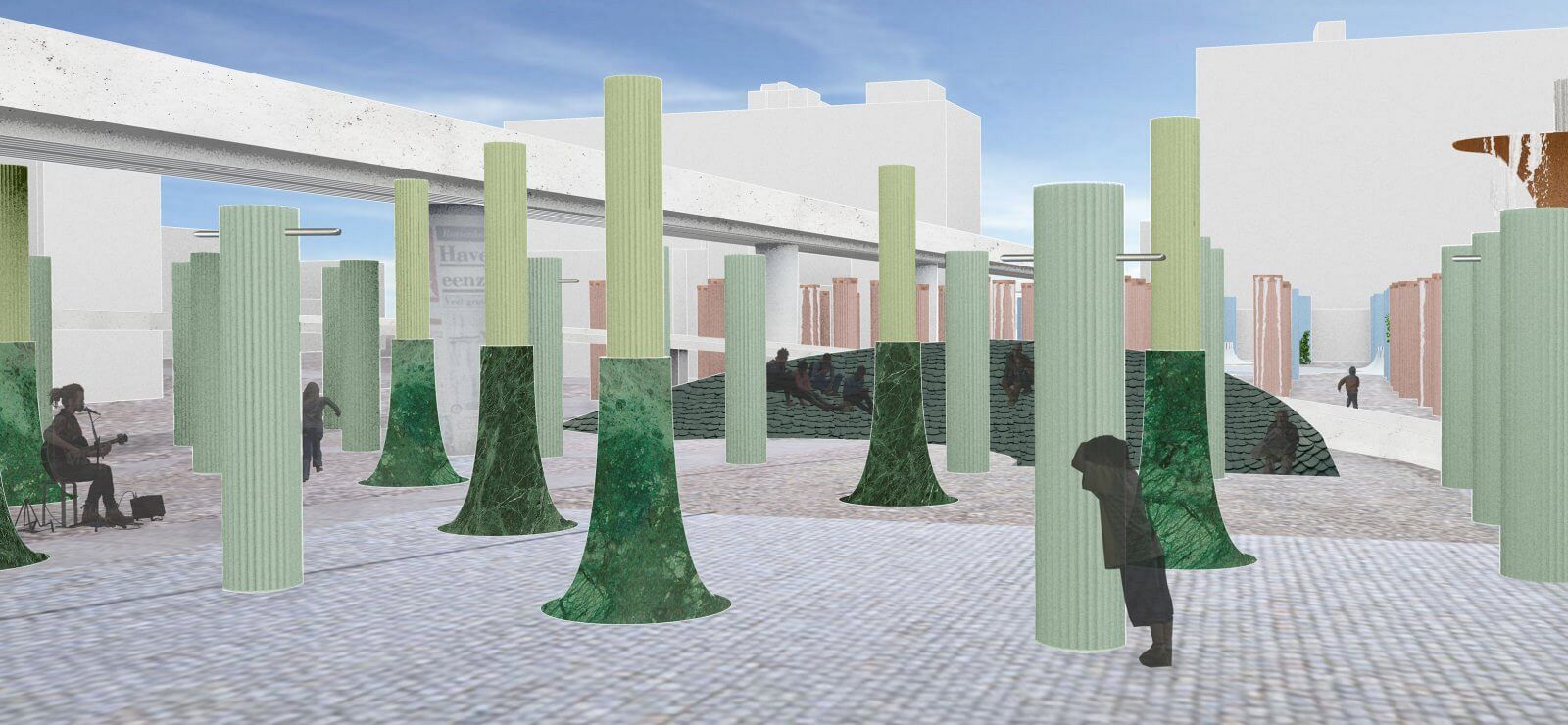
When walking through the city, you may or may not realize all the things you are encountering. But what is surprising, is that in this very controlled environment, we progressively and unavoidably experience feelings of dislocation. It may be during your daily dog walk, in the local shopping mall, or you could even encounter it in virtual reality. At first, these experiences of dislocation might seem odd. However, they are not always accidental phenomena and could offer surprising new ways of perceiving and understanding our surroundings.
The graduation project 'Luxatopia: The Architecture of Dislocation' (and accompanying thesis) shows the value of dislocation as an experience and architectural concept. The urban intervention for Rotterdam Zuidplein visualizes how this concept could manifest as a (virtual reality) experience. Although, it is important to mention that when and how somebody experiences dislocation is depending on their cultural context and social interface. That is because everyone has been taught, by the time and culture one lives in, what is important to look at. This is also the reason why we ignore certain things.
Through research, it became clear that dislocation is a phenomenon that happens on multiple scales throughout the city. And one thing that is generating it, is the general desire to create order instead of unity. With the standardization and the overlap of heavily designed plans, dislocation starts to occur more frequently. And since it is the by-product of an evolving city, people often ignore, over-look, avoid, or try to replace them. But we have to be cautious with their removal or replacement from our surroundings. Because the beauty of dislocation is that it creates uncontrolled in-between places. That manifests in both the order of the built realm as well as the narrative of the city. These void-like dislocated places I named Luxatopia (the prefix luxa- is (third-person singular present luxeaza, past participle luxat) ‘to dislocate’ or ‘dislocation’ and this is combined with –topia, which indicates a place with specified characteristics).
This project shows that Luxatopia and dislocating experiences are crucial for our cities. Because it prevents them from changing into generic landscapes by showing us that we do not always have to put things (back) into order. Instead, we could investigate the essence of what is causing the dislocation to form. By translating that essence in our way of designing, we can create void-like spaces, that will help city-dwellers to read and interact with the uncontrollable reality of the dislocated environments. So that they (again) can become a part of it.
THESIS
Luxatopia: Dislocation in the City.
The graduation project ‘Luxatopia: The Architecture of Dislocation’ is based on the Bachelor thesis: ‘Luxatopia: Dislocation in the City”. The thesis contains a collection of personal anecdotes about dislocated experiences, observations, and (theoretical) research.